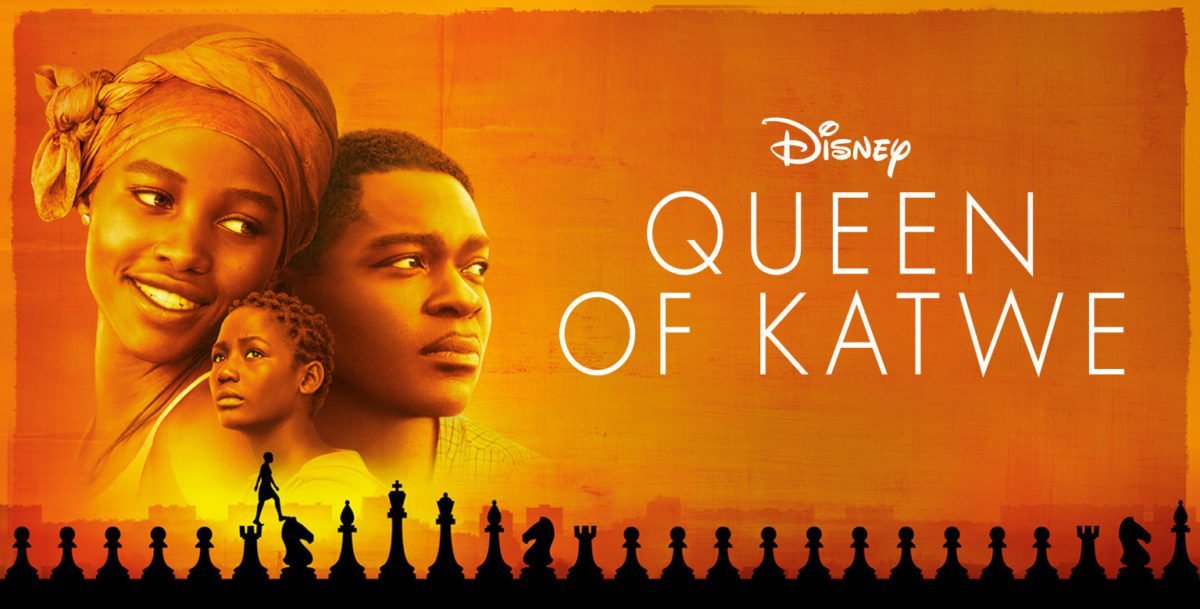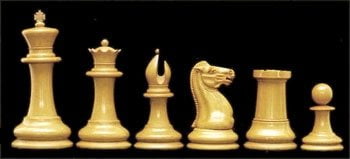
In Katwe, Uganda, two children sit restlessly on a bench, watching their peers play a game of football. Their coach, Robert Katende, spots their reticence, and offers them an alternative.
“There is another game you can play.” he suggests.
He refers to a board-game – chess. At first, the boys scoff at the suggestion – they’re not interested. That is until Katende describes an anecdote in which he defeated his more privileged peers at university. For these children, the prospect of proving themselves against such opponents – the “city boys” – is too good to pass up, and so they join Katende’s small chess academy – the Pioneers.
To be Born in Katwe
Katwe is the largest slum in a district of Kampala, Uganda. Impoverished and devoid of sanitation, its streets run with sewage, layered with mud and debris. To say many of its overcrowded citizens struggle to survive would be a gross understatement; they must scavenge food and water, live within often roofless shanties at risk of flooding, and endure the torment of a high crime rate born out of desperation and poverty. Although there are small signs of change, that change is slow in coming, and will likely take a very, very long time to reach the lowest echelons of Katwe’s poor.
Enter Phiona Mutesi. Born within Katwe, she lost her father to AIDS at around the age of three, and lived, often homeless, with her tenacious mother and family, selling maize in the streets. Like many of Katwe, opportunities to transform her life were few if almost non-existent – she had to drop out of school at age nine – and she seemed locked into a life of destitution and hardship. “We had become hopeless”, Mutesi said of their situation. The chance to change it for the better came with the arrival of chess.
Meeting the Pioneers

Phiona Mutesi’s introduction to chess came through Katende, an engineering graduate who created the Katwe Chess Academy – part of the Sports Outreach program – for the impoverished children of the district. Mutesi joined Katende’s group and quickly distinguished herself as his best player. Katende recognised that he had in his midst a true prodigy; Mutesi was smart, quick-thinking, and able to see several moves ahead. But whilst she came to enjoy the strategy and depth chess offered, it started off as something far more than just a game: it was a means of survival. In the beginning, Mutesi attended Katende’s chess program for the food offered to those who played. “[I] kept going back because there was something to eat.”
In time, the idea of chess as a survival tool would come to mean so much more to Mutesi, as it took her from contests in Uganda and Sudan, to an Olympiad in Russia. Chess developed her intellect and confidence, giving her the chance to escape the trappings of her origins. Her story is an extraordinary one – so extraordinary that in 2016 Disney released a film of Mutesi’s rise, titled after the book on which it was based:
Queen of Katwe.
Female-led with an all-black cast – and with chess as its sport of choice! – Queen of Katwe is a biographical sports drama that sees Disney moving away from its comfort zone of white, Western narratives, and giving Phiona Mutesi’s (Madina Nalwanga) story the mainstream, crowd-pleasing treatment it deserves. Even spotted with the occasional sports drama cliché, the film is nonetheless a heart-warming triumph. Director Mina Nair never shies away from the realities of life in Katwe, but she equally revels in its rich, colourful culture, creating a film as beautiful and vibrant as it is stark and desperate.
Chess: A Way Out
In the film as in life, Katende (David Oyelowo) seized upon the idea of sports as a means of social mobility; chess, he would instruct his students, is much like life itself. Its movements required planning, forethought, and strategy – skills that would equally serve the lives of the young children outside of the game itself. As he teaches the children how to perform certain manoeuvres, Katende uses metaphor to explain the situations they might find themselves in within the game. “When you fetch water for your mother, do you just go any time of the day, or do you think a bit first?” he asks his tutees. He uses chess to teach them their situation is not hopeless, that its applications are broad and universal, and that through it they can reach even greater heights.

As much as the film focuses on personal and communal triumph in the face of staggering odds, of kindness and determination enduring in even the most squalid of habitats, it is Mutesi’s idea of her “place” that I kept thinking about, kept coming back to. In his original article for ESPN – later the spark for his book that brought Mutesi’s story to the world – Tim Crothers describes her position as “the ultimate underdog.”
“Phiona Mutesi is the ultimate underdog. To be African is to be an underdog in the world. To be Ugandan is to be an underdog in Africa. To be from Katwe is to be an underdog in Uganda. And finally, to be female is to be an underdog in Katwe.”
The film emphasises this point throughout, exploring Mutesi’s doubt and fear at simply not belonging in the place she has earned for herself. Mutesi sells maize, has no real education to speak of (she cannot read or write), and is at first rejected by the chess academy because of the way she smells – later for being a girl beating boys. This is a world in which she has been led to believe she cannot aspire for more than the life she’s been given – after all, to her mind, what else is there for a girl from the slums of Katwe? Initially, apart from her her mother (Lupita Nyong’o), she has only her sister Night (Taryn “Kay” Kyaze) as an example – a young woman who has become a prostitute to avoid destitution. And even as her achievements grow, Mutesi continues to question her self-worth – to question her place in the world that’s developing around her. Does she deserve this place? Is there something she has missed, something wrong? Is it all just a fluke?
You Belong Here
In the film’s first contest, a tournament at the prestigious King’s College, Katende struggles to admit his “slum children” to, he pairs Mutesi with the school’s best player. The competition organiser slyly whispers in Katende’s ear that it was “good strategy, putting your weakest player on the champion’s board”, laced with all the attendant sexism that comes with it. And yet, in spite of her opponent’s goading, Mutesi triumphs, winning the Board One Gold Medal. And yet, in spite of her victory, Mutesi still questions her accomplishment “Did that boy let me win? [How] could I win a boy who goes to school here?” Even in spite of the disbelief on the boy’s face, that he snapped his pencil and toppled the pieces with a petulant swipe of his hand, Mutesi still doubts herself and her abilities.
Of course, he did no such thing, but the film’s Mutesi, and presumably her real life counterpart, would continue to struggle with the question of whether or not she deserved her place in the world that was opening up for her. In the film’s final contest, as Mutesi struggles against her opponent, Katende breaks in, and shouts, “You belong here! You belong here!” rooting her in the moment and reminding her that everything she has, everything she has earned, is right there inside her.
Now, Phiona Mutesi is the three time winner of the Ugandan Women’s Chess Championship, has been awarded a Woman’s Candidate Master Title in chess, and is currently enrolled at an American university in Washington. This young girl of formidable intelligence and, like her mother, of considerable tenacity, has more than proven her place as a master of chess, earning herself, and her family, a life beyond the deprivation of the worst of Katwe.
Although the trailer’s heavy on the corny side, the film offers far more – see it.


